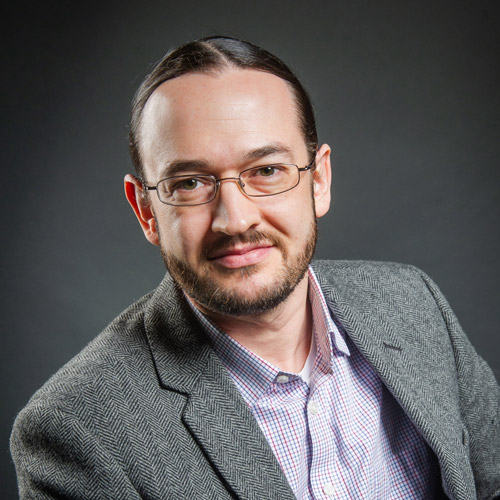Biology by Design
ENG’s Jim Collins delivers 2008 University Lecture tonight
To hear Jim Collins talk about the history and promise of his genetic toggle switch, click on the video above.
Jim Collins is used to breaking boundaries. The College of Engineering professor of biomedical engineering started off studying physics, moved to medical engineering as a graduate student, and just a few years ago made the jump to molecular biology, where he’s helped pioneer the new fields of systems biology and synthetic biology. This evening, he’ll deliver the 2008 University Lecture, Biology by Design, at the Tsai Performance Center. The University Lecture was established in 1950 to honor members of the faculty engaged in outstanding research.
Collins developed the first genetic “toggle switch,” a bioengineered circuit that works like a light switch in a cell, prompting it to start or stop an immune response or the production of certain proteins when stimulated by a drug or a toxin (Collins discusses this idea in the video above). And he and fellow researchers at his Applied BioDynamics Laboratory have been reverse-engineering the cellular and genetic networks of bacteria.
Last spring, Collins achieved another breakthrough, becoming the first Boston University researcher to be named a Howard Hughes Medical Institute investigator, an honor that provides him with long-term funding for the type of bold research projects that government funding agencies are increasingly hesitant to support.
Collins’ inspiration for making discoveries that impact patient care goes back to his childhood, growing up in a family of engineers and having two grandfathers with disabilities (one blind and the other debilitated by several strokes).
“I was struck as a kid and a high school student by how little was done for these guys in rehab,” Collins said in a spring 2006 Bostonia profile. His first breakthrough, after joining the BU faculty in 1990, was in the area of “whole body systems,” namely balance control. He developed special insoles that sent small vibrations to electrically stimulate the sensory pathways between the feet and the central nervous system of people whose age or medical condition had led to balance problems.
By the late 1990s, Collins began applying his systems approach to molecular and cellular biology. While he had little formal training in those disciplines, the move was supported and encouraged by his colleagues, among them Charles Cantor, an ENG professor of biomedical engineering and a professor of pharmacology at the School of Medicine, who was then chair of Collins’ department, and Charles DeLisi, ENG dean emeritus and Arthur G. B. Metcalf Professor of Science and Engineering.
Since then, in addition to cofounding two biotech start-ups, Collins has won a “genius grant” from the MacArthur Foundation, in 2003, and was named one of 50 outstanding leaders in science and technology by Scientific American in 2005. Still, Collins says, the award he’s most proud of is his Metcalf Cup and Prize for Excellence in Teaching, BU’s highest award for teaching, which he received in 2000.
One of Collins’ most recent projects is employing systems biology and synthetic biology to develop a more effective antibiotic. Using engineered bacteria cell circuitry, he and his lab team aim to “better understand how bacteria respond to existing antibiotics and other stimuli by researching the function of protective and cell-death pathways.”
The lab has also been using synthetic genetic networks to test out “genetic mediators behind the development and progression of different diseases,” with an eye toward using the results to help design new drugs.
The 2008 University Lecture, Biology by Design, takes place tonight, October 21, at 7 p.m. at the Tsai Performance Center, 685 Commonwealth Ave. Admission is free and open to the general public.
Devin Hahn can be reached at dhahn@bu.edu. Chris Berdik can be reached at cberdik@bu.edu.

Comments & Discussion
Boston University moderates comments to facilitate an informed, substantive, civil conversation. Abusive, profane, self-promotional, misleading, incoherent or off-topic comments will be rejected. Moderators are staffed during regular business hours (EST) and can only accept comments written in English. Statistics or facts must include a citation or a link to the citation.